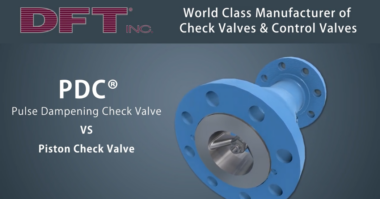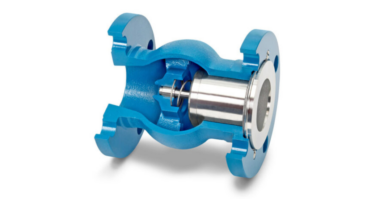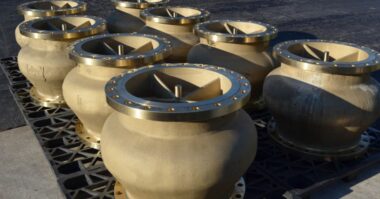Complex piping networks in oil refineries efficiently transport crude oil, a versatile raw material, to various processing units where it undergoes conversion into fuel, oil, distillate, and petrochemical feedstock. Crude oil is also the chemical foundation of a broad range of consumer products, including industrial solvents, pharmaceuticals, fertilizers, and other chemical products.
One of its most common applications is in the manufacturing of diesel oil, gasoline, and other fuels. Petroleum distillation can produce several grades of oils. Each grade has its distinctive qualities and use cases ranging from use in home heating and stoves and ovens to use as lubricants in vehicles (including trucks, automobiles, aircraft, marine, and trains).
As petroleum production and refining processes are crucial to both industrial and commercial applications, ensuring the proper operation of the components and systems that facilitate them, such as valves, is equally important.
Industry Challenges
Valves used in petroleum production and refining applications, such as check and control valves, must be engineered to perform dependably in a wide range of extreme environmental conditions, including:
- Extremely high temperatures (i.e., more than 1,500 F or 816 C)
- High pressures (more than 25,000 psig)
- Cryogenic (-150 degrees F or -101 degrees C) or cryogenic for liquefied natural gas (-260 degrees F or -162 degrees C) temperatures
- Low-pressure environments
In addition to these harsh conditions, the remote locations of valve applications also present design and construction challenges. For example, deep-sea valves operate 10,000 feet (or 3,048 meters) under the sea, while pipeline valves are exposed to extremely high temperatures, such as those found in the desert. Although valves in these extreme environments remain open or closed for extended periods, they are still required to function properly and reliably, even when not regularly cycled.
Valves used in pipeline systems are required to perform over the life span of a producing oil or gas well, which is largely dependent on several factors, including current economies and recovery techniques. Newly found oil and gas sources in shale formations add to the challenges of designing and construction of valves because the pipelines are required to connect the oil or gas source to a processing facility that is miles away.
Applications
Many applications in the petroleum production and refining industry depend on the use of check valves to ensure the unidirectional flow of fluids and enhance operational efficiency and safety. Common applications include the following:
- Compressor discharge
- Pumps
- Boilers
- Water treatment
- Generators
- Cooling towers
- Condensate lines
- Evaporators
- Crude and refined product lines
- Steam lines
- Vacuum lines
- Breakers
Control valves regulate the flow of fluids and gases through oil and gas systems. Some of the common applications for control valves in the petroleum production and refining industry include the following:
- Aqueous slurry
- Attemporator spray
- Boiler feedwater
- Desuperheater
- Fuel control
- Hydrocarbon slurry
- Oil slurry
- Sour water
- Steam lines
Factors to Consider when Selecting Valves for Oilfield, Pipeline, and Refinery Applications
To ensure you select the right valve for your application, consider the following factors.
Pressure and Temperature Requirements
Valves used in pressure-retaining equipment need to withstand optimal pressure and temperature conditions. Selecting valves that are rated for the specific conditions of an application improves performance and ensures safety as they are designed to work with precise pressures and temperatures, rather than a wider range.
Material Compatibility
Fluids and gases flowing through valves are often corrosive and abrasive. Identify the types of media that will come in contact with the valves to aid you in choosing the right materials and finishes to protect against corrosion and wear.
Environmental Factors
The location of a valve can have a significant impact on performance. For instance, valves used on offshore oil rigs or in extremely hot or cold environments require different specifications. This may include equipping valves with insulation of special coatings to withstand harsh environments.
Saltwater and brackish water environments require the use of corrosion resistant valves such as nickel-aluminum bronze check valves. DFT® has NAB check valves that are spring-assisted nozzle style, non-slam check valves engineered to endure the harsh environments of marine environments. In these environments where corrosion resistance and marine life deterrents are a must, DFT®‘s center-guided check valves are reliable and have low maintenance requirements.
Regulatory Compliance
For certain applications, valves are required to have features and undergo tests to ensure compliance with various industry standards and regulations such as API 6D, API 6FA- Fire Test for check valves, ASME, and ISO certifications. By selecting valves from a supplier that maintains essential qualifications, you can ensure the highest quality to continually meet compliance requirements.
For example, the API 6D specification sets the standard for hydrostatic and pneumatic testing for valves used in the petroleum and natural gas industries. In contrast to the base API 598 testing, API 6D testing increases requirements for pressure testing durations, medium PH testing, rust inhibitor, and more stringent design and manufacturing process controls. Purchasing valves under the specification ensures greater reliability and safety for equipment and personnel.
High-Quality Oilfield Valves from DFT®
DFT® specializes in the creation of valves that meet the requirements for oilfield, pipeline, and refinery applications. With a commitment to providing valves that meet customer requirements, we produce valves that continually yield high performance, reliability, durability, and longevity when compared to off-the-shelf solutions.
Case Studies and Resources
Case Study: The ROI of Reliable DFT® Valves
Critical system components, such as check valves, must have excellent durability to reliably and efficiently withstand pressure, wear, and damage. Although quality and durability are often overlooked in exchange for low upfront costs, the return on investment (ROI) of quality products significantly outweighs the long-term costs of using less expensive, inferior quality products.
The following case study on the reliability of check valves illustrates this concept:
A utility facility recently completed a 20 year ROI study involving DFT® check valves compared to swing check valves and found a significant ROI and savings when using quality DFT® check valves. When comparing valve reliability and costs for 150# and 300# valve classes, the 150# swing check valves failed at a higher rate and required replacement four times per year, at the cost of $111,000 over the course of the decade. On the other hand, the DFT® silent check valves needed to be replaced just once every three years, with significant savings of over $94,000. The 300# valves showed similar results.
For further information on the results, view the case study page.
Case Study: Preparing for an Upcoming Plant Outage
Manufacturers across the country often shut down their plants for a couple of weeks once a year to perform necessary cleaning and maintenance tasks to facilitate short- and long-term goals. Careful planning and communication are required for a successful shutdown.
The following case study illustrates DFT® Inc. expert’s analysis of one of their client’s plant shutdown preparations:
During a pre-shutdown visit to a plant, a DFT® valve expert performed an impromptu extended inspection and discovered a potential issue in a methane gas system that was using an 8-inch, 150-pound swing check valve being used. Although not an issue in and of itself, due to the low flow nature of the system, the 8-inch valve was too large and would eventually cause system problems. Their expert recommended a fix, and the client ordered the new valve, scheduling its installation during the next shutdown, to help prevent unnecessary downtime and expenditures.
View the case study page for more on DFT® Inc. expert’s inspection and findings.
eBook: The Rise of Chemical Processing in America
Download this eBook, “The Rise of Chemical Processing in America”, to find out how ethylene is made, how it impacts the consumer goods industry, and what it means for the future of manufacturing in America.
eBook: Severe Service Control Valves Explained
Download this eBook, “Severe Service Control Valves Explained”, to learn about severe service control valves and the types of applications that require them. It also includes a helpful checklist for readers to assist in choosing the right service valve replacement.
DFT® High-Quality Check and Control Valves Built for Oilfields, Pipelines, and Refineries
Petroleum production and refining operations are highly involved processes that require components and systems to meet exacting industry standards. To fulfill and exceed these requirements, professionals utilize different types of check valves and control valves to manage their processes.
At DFT® Inc., they have been manufacturing check valves and severe service control valves for more than 75 years. DFT® Inc.’s goal is to solve valve problems and prevent valve failures. They specialize in providing valves that meet their customers’ requirements rather than using off-the-shelf solutions.
Contact DFT® Inc. today to find out more about their services and how we can help you with your check and control valve needs.



